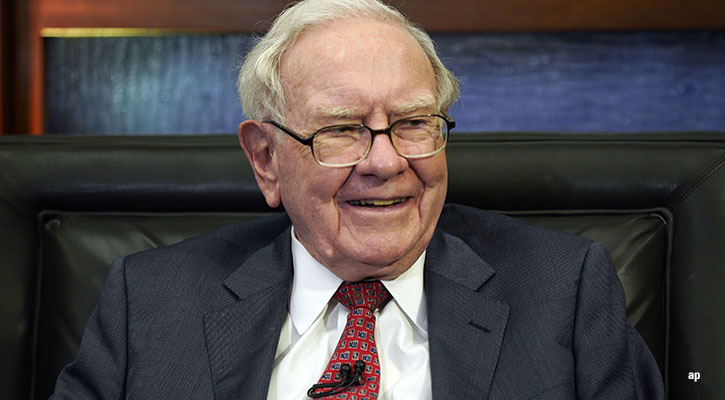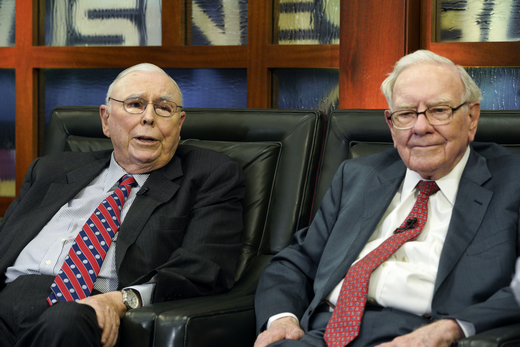Beleggers maken zich zorgen over de impact van de shutdown van de Amerikaanse overheid op hun beleggingen. Morningstar-analist Matt Cofina stelt ze gerust. Overheidsdiensten zijn vaker gesloten en vaak duurde dat niet lang. Hij ziet geen reden om in paniek uit aandelen te stappen. Ondernemingen in de sectoren defensie en gezondheidszorg hebben volgens Coffina wel een grote blootstelling aan de shutdown.
Een volgende reden voor zorg is de debt-ceiling, de terugkerende discussie over het schuldenplafond van de Amerikaanse overheid en waarbij Republikeinen en Democraten voor de oplossing ook met elkaar in de clinch liggen. Coffina erkent dat het schuldenplafond veel angstaanjagender is voor beleggers, maar dat er ook hier geen reden voor slapeloze nachten is.
Coffina: "Ik denk dat het belangrijkste is dat beleggers altijd hun ogen gericht houden op een langetermijnhorizon van 5 of 10 jaar. En zich niet laten vangen door het kortetermijnrumoer van de politiek in Washington, de totale economie, the Fed of wat dan ook. Als beleggers altijd eerst zouden wachten tot dat er geen wolkje aan de lucht is dan zouden ze nooit beleggen in aandelen."
Volgens Coffina kunnen beleggers zich richten op ondernemingen met een grote concurrentievoorsprong en die redelijk immuun zijn voor politieke en economische ontwikkelingen zoals Coca-Cola en Berkshire Hathaway.
Bekijk het volledige gesprek van Coffina:
Jeremy Glaser: For Morningstar, I am Jeremy Glaser. The government [has shut down], but what impact will this have on stock valuations. I'm here with Matt Coffina, editor of Morningstar StockInvestor, to take a closer look.
Matt, Thanks for joining me today.
Matthew Coffina: Thanks for having me, Jeremy.
Glaser: How worried should the average investor be about the impact of a shutdown on their portfolio in terms of fundamental valuations.
Coffina: I think the first thing to keep in mind is that a government shutdown is very unlikely to last really all that long. We've been on the verge of a government shutdown multiple times during the last several years, and always at the last minute, Congress has come through and found some kind of resolution.
Certainly, this time it seems to be different, where the two sides don't seem to be open to compromising at all. But I don't think it will take too many weeks of the government not functioning and political backlash for people to come back to the table.
That said, [now that the government has shut down] I think you have to keep in mind that our valuations are based on cash flows over the next several decades. While a government shutdown could weigh on economic growth in the near term, over the much longer run, it's probably going to be a rounding error when it comes to a discounted cash flow valuation.
Glaser: So [there are] no wholesale changes to fair value estimates?
Coffina: It's hard to see that happening. We do think the market is pretty fully valued or fairly valued already. I wouldn't say that there is a huge margin of safety in current stock prices. The market is trading pretty close to its all-time high, which is perhaps surprising that the market hasn't taken this more seriously.
The last time we saw this, the market sold off quite a bit when a shutdown seemed like it was going to happen, and then the market rallied right back when it didn't actually happen. So far, we haven't really seen that sell-off yet, and I think investors should be prepared for some elevated volatility in the near term here. But overall, I don't see any reason to go run out and panic and sell all of your common socks. I'm certainly planning to stay the course with StockInvestor's portfolios.
Glaser: When looking across the various sectors, are there certain parts of the market that you think would be more affected by a shutdown than others?
Coffina: Probably not in the short run. If the federal government stops operating, it won't be good for the economy. Federal workers would be furloughed. It could hurt aggregate demand, which would be bad for the economy. Some sectors are obviously more exposed to government spending than others. The big one would be defense, but also health care to a lesser extent.
I think it's pretty unlikely that we're going to see serious cuts in Medicare or Medicaid spending or defense spending for that matter as a result of this. But those are the sectors that might be a little more exposed than others. But again, in the grand scheme of things, I think it's very unlikely that this budget impasse is really going to result in a material decrease in intrinsic value.
Glaser: We've talked a little bit about the impact of a government shutdown. But what would happen if we went through the debt ceiling, which is also coming up [in several weeks]? Would that have a bigger impact on stocks?
Coffina: I think the debt-ceiling debate is much scarier for investors, even than this budget impasse is. In a worst-case scenario, you could see the Treasury unable to pay its bills and maybe even not pay the interest on the debt, which in a very worst-case scenario could result in another financial crisis, if we saw a crisis of confidence where people no longer wanted to lend to the federal government and interest rates rise and so on. But I think that's really an outside risk at this point, and not something that's worth really losing any sleep over.
I think when push comes to shove, Congress is going to realize that the government has to pay its debts. Neither party really wants that on their conscience that they let the federal government for the first time ever default on its obligations.
Glaser: But if that were to happen, or if there's even a threat of that to happen, you certainly could see some volatility. If there are some big sell-offs, do you think investors should be buyers or should they be a little bit more cautious?
Coffina: First of all, I think it's very important that investors maintain a long-term perspective. If [anytime in the next five years] you're going to need the funds that you're investing for your personal living needs to pay your mortgage, to send a kid to college, or whatever it is, those funds shouldn't be invested in common stocks in the first place because anything can happen in the market. Stocks can sell-off for all sorts of reasons, some of which have very little to do with the fundamentals. You'll just sleep easier at night not having those kinds of funds in the stock market to begin with.
Now if we do see opportunities and the market sells off--and again, we think the market is about fairly valued right now, so you have to see a pretty significant sell-off before we really had some very significant opportunities. But the kind of stock that I like is really the kind of stock that's best-suited to this environment of uncertainty and macroeconomic uncertainty. And those would be wide-moat companies, companies that should thrive regardless of the broader environment.
Some names that come to mind would include Coca-Cola. It's hard to see people really cutting back on their consumption of Coca-Cola products because the government shut down for a few weeks. Berkshire Hathaway is a very broadly diversified company across the economy and a very high-quality business that should do well regardless of the environment.
Over in StockInvestor's Hare portfolio, I would say Express Scripts. Here's a name that is a little bit more tied to government health-care spending. But really is pretty well-diversified across health benefits whether employer-sponsored or through the government or individually purchased, and that's a company that I think is trading at a pretty steep discount to fair value already. And so it looks like it already incorporates a margin of safety and, again, it's relatively difficult to see [these companies] materially impacted by a government shutdown.
Glaser: It sounds like there could be some opportunities in the volatility, [therefore investors should] just keep that long-term focus.
Coffina: Yes. I think that's the key always is that investors need to keep their eyes on the five- to 10-year horizon and not get caught up in the short-term noise of Washington politics, the overall economy, the Fed, or whatever it is. If investors always waited until there were nothing but blue skies to invest, they would never be invested in stocks. There's always some cliff we're about to drive over. And I think the important thing is not to completely look the other way, but at least keep these things in perspective and understand that over the long run it's the cash flows that a company generates that are really going to determine its [intrinsic] value. And those cash flows over multiple decades in the future are not going to be that affected by a few weeks of the government staying closed.
Glaser: Matt, thanks for your thoughts today.
Coffina: Thanks for having me Jeremy.
Glaser: From Morningstar, I'm Jeremy Glaser.




















